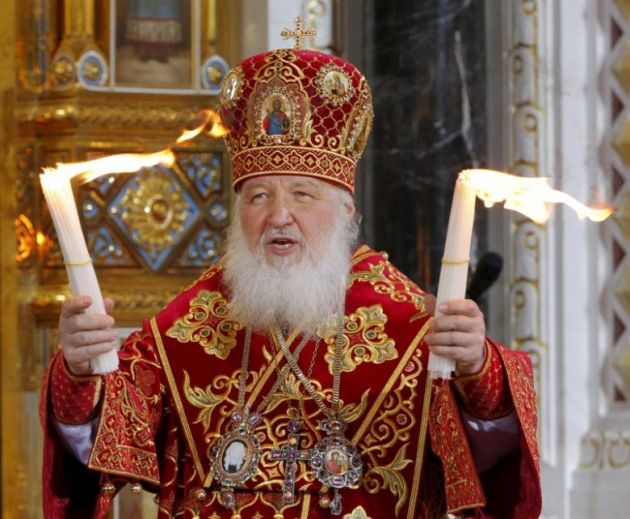Russian Orthodox shun bad habits for Lent; Zimbabweans do WhatsApp fast; Americans spurn iPhones

Orthodox Christians in Russia were the first to begin Lent this year on Feb. 27 beginning a 40-day period of fast and sacrifice followed by Western Christians on Ash Wednesday, March 1.
For some Christians the period of Lenten sacrifice will entail cyber sacrifices such as abstaining from using the social media application WhatsApp and others are being urged to have an iPhone fast.
This year is a special Easter.
Those Orthodox who follow the Julian calendar like the Russian Orthodox and those who follow the Gregorian calendar along with Western churches will celebrate Christianity's greatest feast day on the same day, April 16.
The last day before Great Lent for Russian Orthodox was Forgiveness Sunday, which rounds up the week of Maslenitsa or Pancake festival celebrations,
Lent is the longest and strictest fasting season of the year in the Eastern Orthodox Church, Tass news agency reported.
The Eastern Orthodox Lent always begins on a Monday, which is designated as "Clean Monday."
That is the day Orthodox faithful begin a spiritual and moral purification through fasting, prayer, meditations, repentance, attending Lenten religious services and partaking of the Sacraments of Confession and Communion.
For Russian Orthodox believer products of animal origin and bad habits can be prohibited during that time and believers are encouraged to work on uplifting and strengthening their character, visit churches more often, take communion
In Zimbabwe, however, Roman Catholic youths across the country have been encouraged to go on a fast of WhatsApp for 40 days during the Lenten season.
Tendai Karombo, a youth representative in the Catholic Church in Zimbabwe, implored youths to abstain from using the free messaging application which is wildly popular with young people in the Southern African nation.
Speaking on a pre-recorded video during the launch of the 2017 Roman Catholic Church Lenten DVD in Harare, she said this was an opportunity for youths to show their commitment.
"Lenten season is that time when we journey together with Jesus, the passion, His crucifixion and His resurrection that is the moment we show Christ our allegiance to Him.
"But as Catholic youths, the concept of fasting is something which is not clear to us. However we do fast. Those who fast mainly fast food following the dictates of their parents but this coming Lenten season we will try and fast WhatsApp. We have never done it but I want to believe that we can do it," said Karombo.
Father Reki Mashayamombe from Seke Rural parish said abstaining from WhatsApp as a form of fasting is a prudent idea because so many young people spend their time on the platform.
"If they abstain they will concentrate on God during the Lenten season and also it shows an act of sacrifice," he said.
iPHONE FAST
In the United States, many people fast everyday things like alcohol, soda and sweets. This year, certain dioceses of the Catholic Church have suggest an iPhone fast for parishioners to sacrifice for Lent.
Some church leaders have taken to Twitter, like Archbishop Leonard Blair in Hartford, Connecticut, who is promoting the "#iPhoneFast" campaign online, ABC News reported.
With the current political climate and the division on social media, Archbishop Blair is asking people to turn off their smart phones, if not for the entire month, at least for Ash Wednesday and Good Friday.
In Sacramento the Downtown Cathedral was packed at noon Wednesday with parishioners waiting to receive ashes.
"This is just a reminder that we are from dust and dust we shall return so everything we do in between really matters," Cathedral Youth Director, Titi Kila said.
Young adults from the church were asked if they thought the #iPhoneFast was possible, with one girl told saying "no way" and Jose Esparza said definitely not.
"I mean I can give up social media but I can't give up my phone completely," Esparza said.
The broadcaster found 23-year-old Jheryssa Florintino who did the #iPhoneFast last year. She encourages other millennials to do the same.
"It was a great way to reconnect to my faith and take away my time from all the technology really," Florintino said.
The campaign slogan is, "Shut off your phone and let God call your heart."